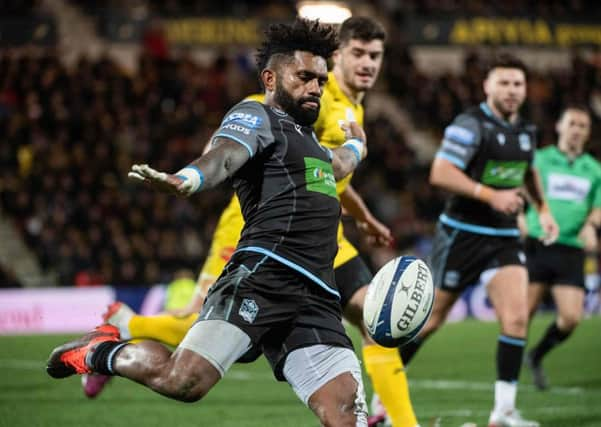Allan Massie: Glasgow win in France is right up there, but larger tasks loom


Most of the Top14 clubs have impressive home records. La Rochelle’s is particularly good. So Glasgow’s victory there last weekend must count among their best. It was all the more remarkable because for the first quarter of the game they were very poor indeed, so bad that one feared they might be in for a real hammering. They missed tackles or lost the ball in contact and were untidy at the breakdown. They conceded penalties and when Scott Cummings deftly stole a La Rochelle throw-in five metres from the Glasgow line, neither DTH van der Merwe nor George Horne could gather the tap-down, and a try was conceded.
Indeed Glasgow were hardly in the game until, on the stroke of half-time, they spurned a very kickable penalty chance, boldly went for the lineout, and mauled to the try-line, allowing captain Callum Gibbons to score. The second-half tries from Niko Matawalu and Kyle Steyn put them ahead. Even so it took a wonderful covering tackle from Ali Price to prevent a try and then three or four minutes of committed and well organised defence deep in their 22 to enable Glasgow to win.
Advertisement
Hide AdAdvertisement
Hide AdSo their Champions Cup is still alive, and with Sale losing at home to Exeter, Glasgow are in second place in the pool. But they have only eight points, not having secured a bonus point in their three matches, and they will surely have either to win their last three matches – La Rochelle at home today, then Exeter, also at home, and Sale away in January – or to win two and get a bonus point in all three games which would put them on 19 points. Three wins without bonus points might still leave them only in second place, since Exeter already have 14 points, six more than Glasgow. Well, nobody ever thought this pool was likely to be an easy one. The news that Tommy Seymour has called time on his international days is sad but not surprising, players quite often seeing a World Cup as a signing-off moment. He has had a fine career, finer than some might have thought likely when he moved from Ulster to Glasgow. Twenty international tries puts him just behind Chris Paterson in the professional era, both just behind Hawick’s Tony Stanger and Ian Smith, the “Flying Scotsman” of the 1920s and early 30s. Seymour may not be as accomplished in all aspects of the game as his back-three colleague Sean Maitland, but no Scot in recent years has had a sharper eye for the try-line, and none has been as good in both attack and defence when the ball is in the air, a vital skill for a wing in these days of what often seems like incessant box-kicking. Happily, he still has a lot to contribute to Glasgow.
Some expected Greig Laidlaw to say “that’s enough” after the World Cup, but he hasn’t done so – and why should he? He was still first choice for the big matches in Japan, even if Gregor Townsend’s selection was made easier by the injury which ended Ali Price’s World Cup not long after it began. But Laidlaw is still playing – and playing well – for Clermont-Auvergne where he shares scrum-half duties with Morgan Parra whose own international career may have come to an end. So it seems likely that for this season’s Six Nations and next summer’s matches against South Africa and New Zealand, we are still going to be arguing, with opinion sharply divided, about which of the three – Laidlaw, Price and George Horne – is our best No 9.
They are all players we are lucky to have. My own view is that if you took the different elements of the scrum-half game – judgment, game management, speed at the break-down, passing, breaking, support play in attack, kicking from hand, defence and especially cover defence – and rated each of the three on a descending scale of 3,2,1, Ali Price might on aggregate come out top. He might not have so many 3s, but where he didn’t rate a 3, he would always score 2, there being no element in which he is the weakest of the three. One might add that he also has the advantage of being the only naturally left-footed kicker in the Scotland squad.
But then one thinks of goal-kicking and the value of Greig Laidlaw’s accuracy from the tee. Of course Finn Russell has also kicked goals for Scotland, with a high percentage of success. This season however, Marcel Machenaud, who was injured for much of last season, has resumed his role as Racing92’s first choice goal-kicker and so Finn hasn’t been doing the job. Would we be happy going into the Six Nations without a kicker who was kicking goals week-in, week-out? Food for thought, and a prolonged argument. Some comfort of course that all three are better scrum-halves than anyone England can field.